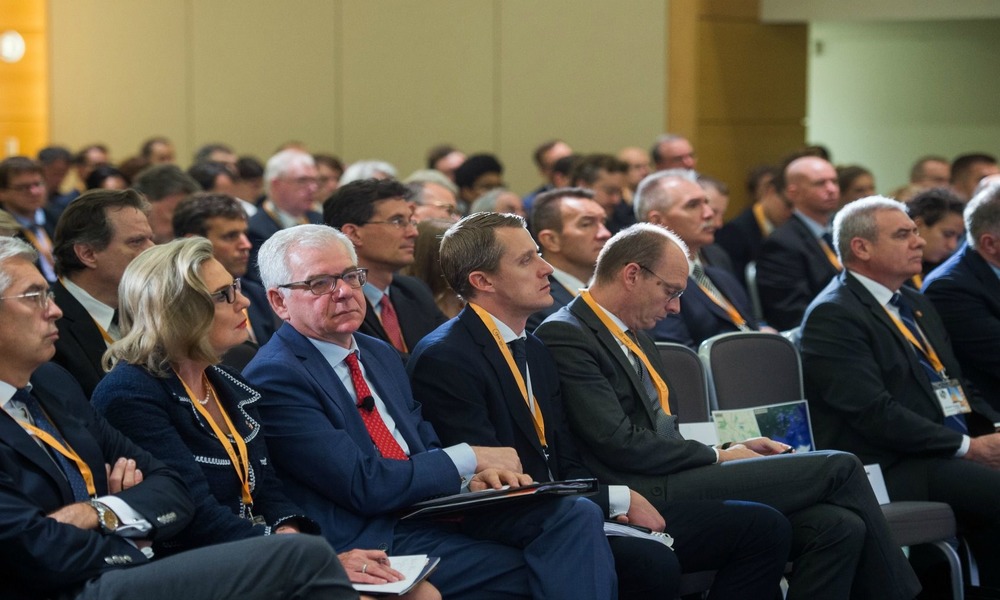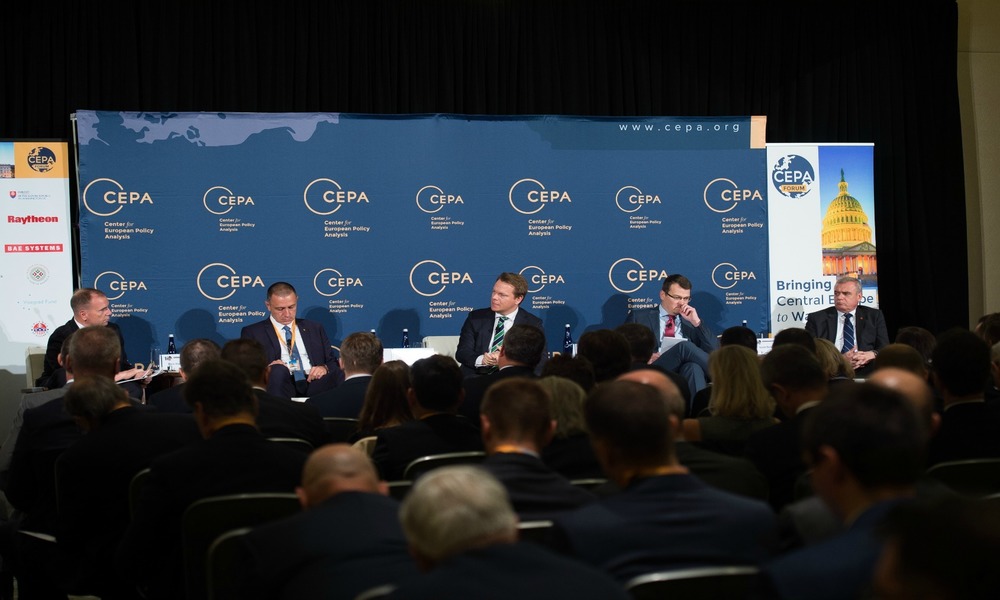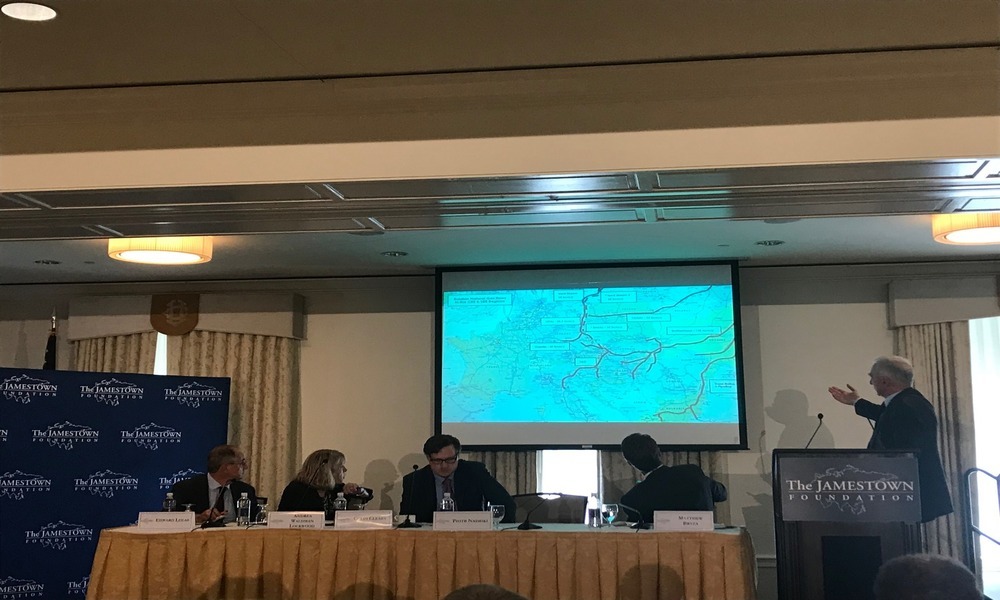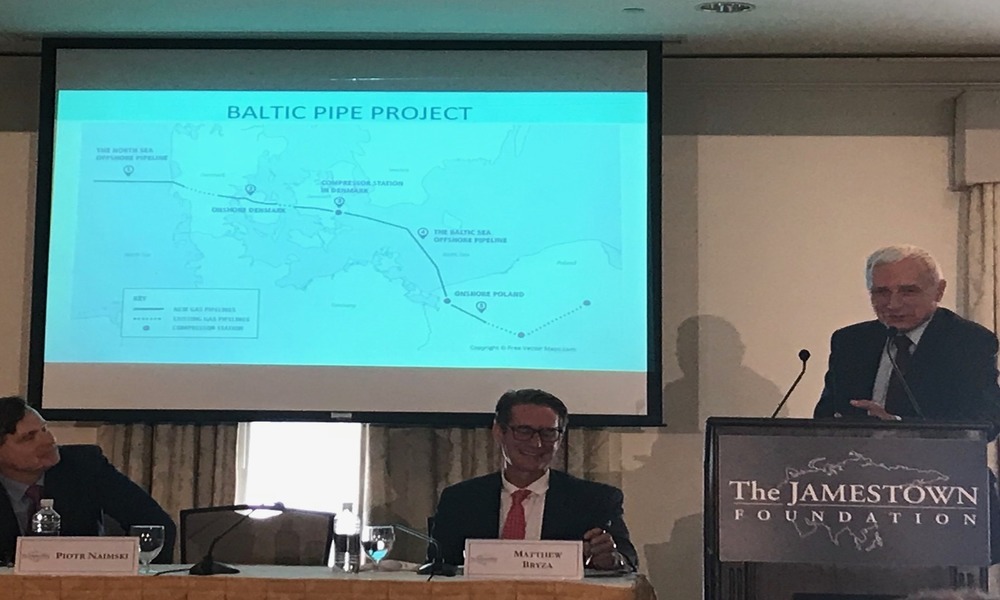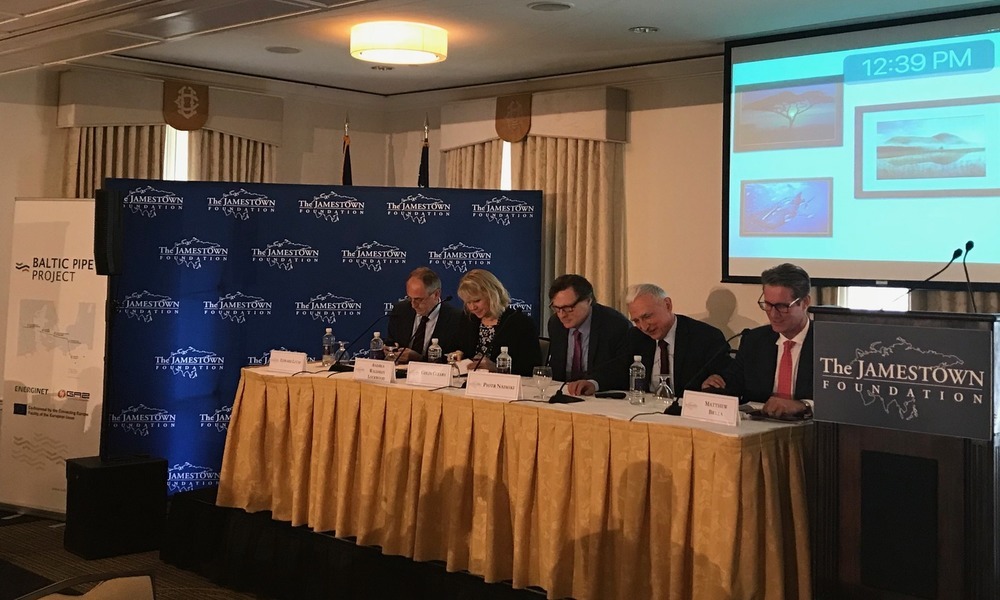NEWS
Date: 28 September 2018
NATO & Nord Stream 2 – Warsaw Institute in Washington, D.C.
Our representatives took part in the 10th edition of the CEPA Forum organized by the Center for European Policy Analysis and in the Baltic Energy Security conference organized by the Jamestown Foundation. During these events, the two most important topics in transatlantic relations were discussed – the involvement of the countries of the Central and Eastern European region in NATO and the opposition of the region and the USA to the Russian project of the Nord Stream 2 gas pipeline.

CEPA Forum 2018
“Winning the 21st Century–Allied Strength and Solidarity” – is the theme of this year’s conference organized by the Center for European Policy Analysis in Washington. During the discussion, one of the most important topics discussed was the involvement of the European Union in supporting NATO in the form of expanding the infrastructure, which would increase the mobilization and logistic capabilities of the alliance. The panellists debated the need to increase spending on armaments on the side of European NATO members, the burden-sharing mechanism and effective means of administering defense spending. In addition to the challenges that stand in the way of strengthening the alliance, new threats were also discussed, including disinformation campaigns, corruption, international economic crime and cyber attacks. An important element of the discussion was energy security and the criticism of Nord Stream 2 as a project striking European solidarity and threatening the security of the whole of Europe – not only in the economic, but geopolitical and military context. CEPA Forum is the annual leading conference on transatlantic security in Washington. This year’s edition brought together over 300 experts and decision makers.
The conference was attended by:
James F. Pasquarette (Army Deputy Chief of Staff, G-8, United States), Miroslav Lajčák (Minister of Foreign and European Affairs, Slovakia), Jacek Czaputowicz (Minister of Foreign Affairs, Poland), Linas Linkevičius (Minister of Foreign Affairs, Lithuania), Mihai-Viorel Fifor (Minister of Defense, Romania), Ana Birchall (Vice Prime Minister for Romania’s Strategic Partnerships’ Implementation, Romania), Edward Lucas (CEPA Senior Vice President), LTG (Ret.) Ben Hodges. Mihai-Viorel Fifor (Minister of Defense of Romania), Jan Havránek (Policy Advisor in the Policy Planning Unit of the Office of the Secretary General at NATO), Róbert Odrejcsák (Deputy Minister of Defense of Slovakia), István Szabó (State Secretary of Defense of Hungary), Timothy Garton Ash (Professor of European Studies at the University of Oxford), Janusz Bugajski (CEPA Senior Fellow), Kurt Volker (Special Representative for Ukraine Negotiations of the United States), Audun Halvorsen (Deputy Minister of Foreign Affairs of Norway), Jānis Kažocins (National Security Advisor of Latvia), Tomáš Petříček (Deputy Minister of Foreign Affairs of the Czech Republic), Indrek Sirp (Director of the National Security and Defense Coordination of the Government Office of Estonia), Brian Whitmore (Senior Fellow and Director of the Russia Program at CEPA), Piotr Naimski (Secretary of State for Strategic Energy Infrastructure in the Chancellery of the Prime Minister of Poland), Sandra Oudkirk (Deputy Assistant Secretary of State, Bureau of Energy Resources of the United States), Dominik Tolksdorf (Director of Foreign & Security Policy at Heinrich Böll Stiftung North America), Žygimantas Vaičiūnas (Minister of Energy of Lithuania), Ambassador Dr. Réka Szemerkényi (Executive Vice President of CEPA)
Baltic Energy Security
The conference organized by the Jamestown Foundation was aimed at answering the challenges for the security of Europe posed by the Russian Nord Stream 2 pipeline project. During the discussion representatives of Polish and American administration, experts and entrepreneurs discussed proposals for diversification of natural gas supply sources in the light of increased export opportunities of the American LNG and the Polish Baltic Pipe project, which will open the region to Norwegian gas supplies. Participants emphasized both initiatives as a way to break the Gazprom monopoly and a way to real diversification of sources of supply which will enable real liberalization of the energy market.
The conference was attended by:
Piotr Naimski (Secretary of State in the Chancellery of the Prime Minister of Poland and Government Plenipotentiary for Strategic Energy Infrastructure), Colin Cleary (Director for Energy Diplomacy for Europe, the Western Hemisphere and Africa, Bureau of Energy Resources, U.S. Department of State), Andrea Waldman Lockwood (Deputy Assistant Secretary for Africa, Middle East, Europe and Eurasia, Office of International Affairs, U.S. Department of Energy), Glen E. Howard (President, The Jamestown Foundation), Vladimir Socor (Senior Fellow, The Jamestown Foundation), Edward Lucas (Senior Vice President, Center for European Policy Analysis – CEPA), Margarita Assenova (Director of Programs for the Balkans, Caucasus & Central Asia, The Jamestown Foundation), Matthew Bryza (Former Deputy Assistant Secretary of State for Europe and Eurasia), Tomasz Stępień (CEO, GAZ-SYSTEM, S.A. Poland), Igor Wasilewski (CEO, PERN, S.A. Poland)


